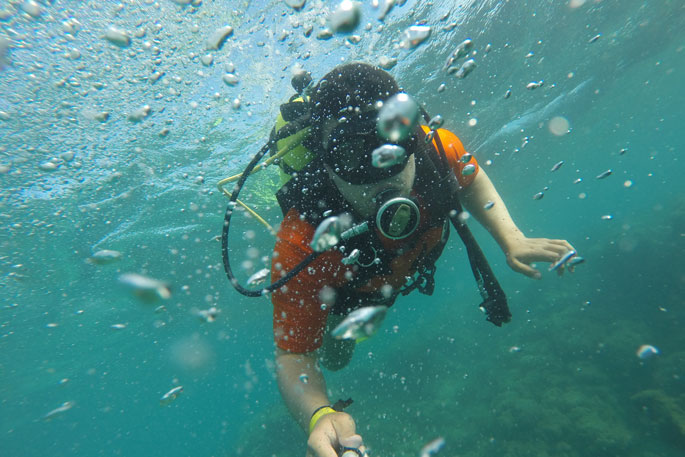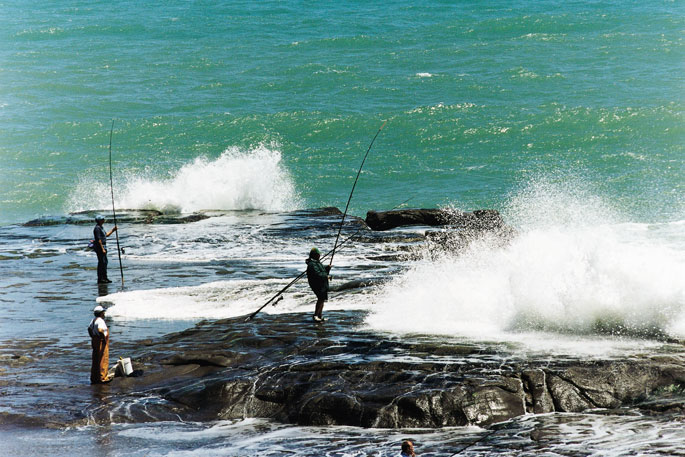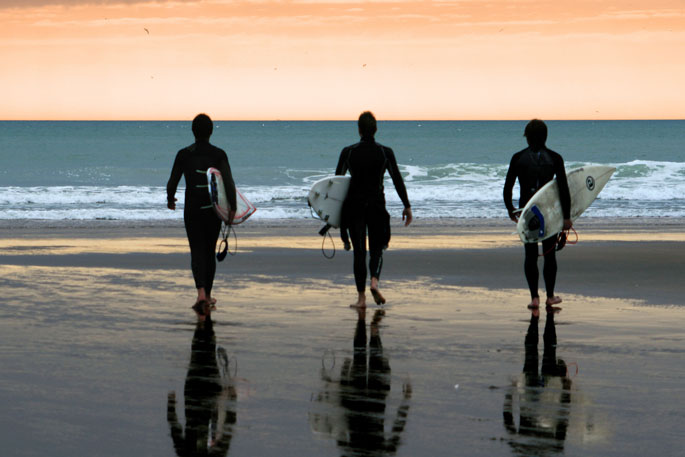Swimming is the leading cause of drowning deaths in New Zealand, with men aged 65 and older are the most at risk of death from drowning in the past decade.
That's according to new ACC figures, which show that over the past 10 years, February was the second most dangerous month for fatal drownings, and men are almost four times more likely to drown than women.
January was historically the most dangerous month for fatal drownings over the past decade.
The figures have led to renewed calls from ACC and Water Safety New Zealand for people to understand the risks in and around the water ahead of the upcoming holiday weekend.
While preventable drowning deaths have dropped from 98 in 2012 to 74 last year, there have already been 19 preventable drownings so far this year – nine more than at the same time last year.
ACC injury prevention leader James Whitaker is urging Kiwis to not overestimate their ability in and around the water.
'The statistics show we all need to take the time to assess and understand the risks before we hit the water,” Whitaker says.
'We can keep ourselves and our whānau safe by spending a bit of time watching what the sea, rivers, or lakes are doing, then making safe decisions.”
ACC figures show swimming was involved in roughly 70 of the 526 claims for fatal drownings between 2012 and 2021.
That was followed by fishing, with 43 claims.
Of the swimming-related claims, 17 occurred at the beach, 12 at rivers, and five at lakes. There were a further 33 claims that did not specify where the drowning happened.
Over-65s most at risk
People aged 65 and older were involved in 78 fatal drowning claims over the past decade, the most of any age-group.
According to Water Safety NZ, there were 800 preventable drownings in total over the past 10 years.
Of last year's 74 preventable drownings, 22 per cent were aged 65-plus, the highest of any age-group and the equal highest total for over-65s since 1988.

Water Safety NZ chief executive Dan Gerrard says this is partly due to a higher, and largely healthier, 65-plus population.
'Older people are healthier and more active than in previous generations, so more of this older age group are in situations that might lead to problems.
'However, although they have been used to being active, they can still have health issues due to getting older, and if a health issue causes you problems on the water and no one is immediately there to assist, it can go horribly wrong quickly.”
An older population of male boaties were also often overestimating their abilities, Gerrard says.
Overestimating swimming ability a danger
Gerrard says most people involved in swimming accidents underestimate the risks and overestimate their ability.
'Most drownings and water-related injuries are preventable if we all take a moment to consider the risks.”
Research from Water Safety NZ in 2021 found 3.2 million adult New Zealanders (or 85 per cent) visited the coast in the past 12 months, with two million people getting in the water.
ACC and Water Safety NZ are urging people planning trips to the water this weekend to become familiar with the Water Safety Code: be prepared, watch out for yourself and others, be aware of the dangers, and know your limits.
Things people can do to keep safe include wearing lifejackets, swimming with others and between the flags, carefully checking weather and marine conditions, and checking for safety signs, warning flags, currents, and rips.
Rock fishing extremely hazardous
Research shows about one-quarter of all New Zealanders fish every year.
Rock fishing is an increasingly popular pastime, but the danger of being swept off the rocks makes it extremely hazardous.
'It's a great feeling getting out with your friends on a boat or on the rocks and trying to reel in the big one,” Gerrard says.
'The catch is it's also a leading cause for injury.”

Water Safety NZ advice to stay safe while fishing includes wearing a lifejacket, carrying two forms of waterproof communication, checking the marine weather forecast, learning water survival skills, knowing the area you are fishing in, and never fishing alone.
Additional safety measures for rock fishing include paying particular attention to swell and tide information, not fishing in exposed places during rough or large seas, and spending at least 10 minutes observing the sea conditions before approaching the rock ledge.
People should never fish from wet rocks where waves and spray have been sweeping over them.
Most common sports involved in ACC fatal drowning claims, 2012-2021
Swimming: 70 (Beach 17, River 12, Lake 5, pool
Fishing: 43
Boating: 19
Underwater Diving: 16
Kayaking: 9
Surfing: 8
Most common age-groups involved in fatal ACC drowning claims, 2012-2021
65-plus: 78
20-24: 65
50-54: 44
25-29: 42
40-44: 41
Total preventable drownings, 2012-2021 (Water Safety NZ figures)
2012 – 98
2013 – 79
2014 – 71
2015 – 86
2016 – 78
2017 – 92
2018 – 66
2019 – 82
2020 – 74
2021 – 74



1 comment
Two things.
Posted on 17-02-2022 13:28 | By morepork
As one of the at risk group, who enjoys swimming at least twice a week, I offer the following: 1. Learn Drownproofing. A military technique which helps you stay calm and alive in water. (I learned in the NZ Army...but clear instructions are available on the Internet.) 2. Recognize that you don't have the strength that you used to have, even though you may be quite fit, and manage your energy accordingly.
Leave a Comment
You must be logged in to make a comment.